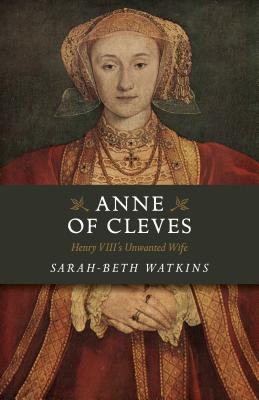Rating: 4 Stars
I read this one a while ago. A good long while. In fact, if Mr. Lewis recalls just how often I posted about it before and during my reading, he may wonder what the heck happened to take me so long to finish my review. The reason is, because this is one I really had to think about for a while. Not because I didn't know how I felt about it (I really liked it, obviously), but I did not know how to properly convey the fact that I really liked a book that I pretty much disagree with. So, here goes!
I think it is important that people understand it is entirely possible to enjoy a book while disagreeing with it. This is not the first book I have read by Matthew Lewis and it will not be the last. He is a fantastic historian, makes more than ample use of contemporary sources, and uses them to their fullest value. I admire his commitment to various positions on historical events, and the work he puts into showcasing those events and his interpretations. I was, however, bothered by the lack of footnotes. I feel like with a case such as this, even though it is easily one of the most identifiable cold case mysteries in the history of, well, history, those footnotes and resources become doubly important. That they were lacking in this text seemed unusual to me, and there were many times throughout that something was not attributed to a contemporary source, and it bothered me.
I will be very clear now that I am in no way a Ricardian, and I find some of the lot frightfully thick-headed. There's rehabilitation of character, and then there is going overboard and making the person into a saint when they were not. Richard was very much a product of his age, and in the likely event that he ordered the murder of his nephews, while we abhor the thought today, rival claimants were eliminated time and time again by kings who had a tenuous (and sometimes not so tenuous because, seriously Henry VIII, you killed A LOT of people you didn't need to) hold on their throne. This does not make Richard any more of a monster than King John, who may have actually murdered his nephew, Arthur, in a violent rage with his own hands. Though, to be fair, John was a really shitty king and a really shitty person for multiple reasons besides the fact that he was a nephew killer. The difference there of course is that Arthur was actively leading troops against John in a fight for the crown (Arthur's father was John's older brother Geoffrey, who had died in 1186. Many thought Arthur had a better claim, but Eleanor of Aquitaine most certainly did not and she backed John, helping him secure the throne). Edward and Richard were young boys, 12 and 10. It is a little harder to stomach the murder of two boys who must have felt very scared and very lonely, given the fact that they hardly knew one another at all by the time they were locked away in the Tower together.
Lewis does not solve the mystery of what happened to the princes. He also does not claim to do so and that is not his ultimate goal. What he does instead is present some alternative theories, some of which definitely merit a second look. Some of the theories are not new, particularly those covering the so-called pretenders, Lambert Simnel and Perkin Warbeck. (Truth be told, if we are betting that one survived, I would put my money on Perkin Warbeck having been the real Richard, Duke of York. You can't look at his portrait, and one of Edward IV, and tell me there is no resemblance. On the other hand, perhaps that was the intention of the artist who sketched Warbeck, and the likeness is not actually true to reality. That is what makes this one of the all-time great mysteries. There are so many threads hanging loose and when you pull one, you never know where you might end up next.) I appreciate the fact that Lewis has no illusions about the possibility of solving the mystery. it simply can not be done at this point, unless the bones discovered in the 1600s during Tower repairs were ever permitted to be tested. Until that happens (which I fear it won't in my lifetime), there is simply no way to know.
I personally have been of the mind for many years that Richard ordered the murders to secure his throne. Rumors were going around for months that Richard had had the boys murdered. He could have swiftly put an end to all of it by producing the boys and proving they were still alive. He chose not to, and I believe it is because he couldn't. I also think that Henry Tudor knew of the murders after he won the crown at Bosworth and he thus knew he could re-legitimize Elizabeth and her sisters without fear of the boys then coming back to claim the throne. That did not stop the pretenders of course, but there was not much Henry could do about them except deal with them as they came.
The reason I want to make my own position clear on the matter is because that, though this is a book that explores alternatives to the princes being murdered, its purpose is not to do so in order to rehabilitate Richard. If you are the most die-hard believer that Richard was terrible and murdered with reckless abandon, this is not a book you should avoid. Sometimes the 'what-ifs' are as intriguing as the truth and I have always enjoyed the game, especially in regards to some of my fave periods and people in history. Lewis will be the first one to point out that Richard just as easily could have killed them as not, but some of the other theories are just as tantalizing in their own right.
There are many theories put forth here and while some might seem wholly far-fetched (Holbein's More family portrait dissection was a bit much for me), Lewis points out that when dealing with a mystery of this magnitude, with little evidence to go on, we must look at what he describes as the 'black hole effect'. He explains this by saying that black holes can not be seen, but we know where they are based on how things near them react. So, even though the boys were never seen from the Tower windows after 1483, we must look at the actions and words, or lack of action and words, of those who were closest to the action and most impacted by whether the boys lived or died (aside from the boys themselves of course). There are certainly instances we can look at, which Lewis does, that make one pause and wonder. I do not want to share those here, because they will make you pause, and it is something I want to leave for you to discover yourself.
I do find it intriguing the theories of both boys not only surviving Henry VII's reign, but living on into Henry VIII's and beyond. What makes this all the more fantastic is the possibility that the Tudors kings and queens KNEW this, knew the boys were alive, had grown into young men who had new names and identities created for them. They grew up, got married, and had children. I do not buy into the idea that Edward V became the grandfather to Guildford Dudley (as Edward Guildford), thus engineering a potential Yorkist heir's return to the throne through the marriage of Guildford to Jane Grey. Still, I'd encourage anyone interested in the various theories to give this one a read and make up their minds for themselves. Lewis certainly won't attempt to do that for anyone, which I found rather refreshing. It is not simply a rehashing of the usual suspects and why it wasn't Richard, it was Buckingham, or Margaret Beaufort (seriously, can we give this one a rest already. she DID NOT HAVE THE BOYS KILLED! That much I am certain of). After all, since there is no definitive proof the boys died (as some believe), why is it so wrong to look for evidence that they lived?










